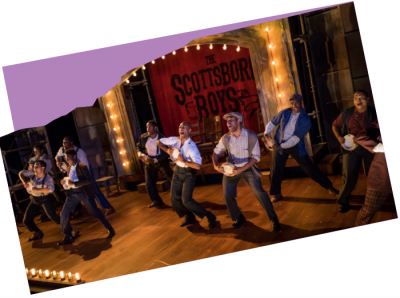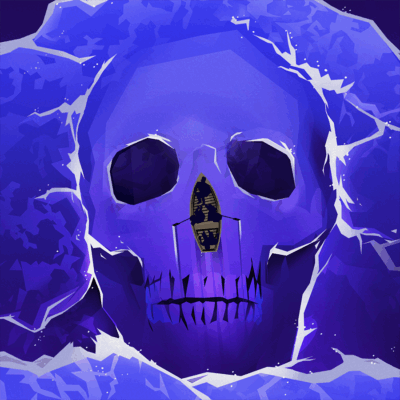Your donation sets the stage for a new season of Boston's most intimate, entertaining and provocative plays and musicals. Our shows make powerful connections with our audiences-- and they are only possible because of you.
Andre’s Mother
Andre’s Mother
MOTHERS & SONS opens with a monologue: a middle-aged man tells an older woman about the view from the window they stand in front of. The man, Cal, jokes about joggers and his family. The woman, Katharine, says nothing. As it turns out, this type of exchange is not that unusual for these two characters, since it’s the exact same dynamic that took place when they last met, twenty-five years prior, and in a completely different play.
Andre’s Mother, the precursor to Mothers & Sons and the first appearance of both Cal and Katharine, was written by Terrence McNally in 1988, as part of a Manhattan Theatre Club revue entitled “Urban Blight.” The evening featured a set of short works by American playwrights, all dealing with the particular stresses of living in New York. McNally wrote his play about the AIDS epidemic, which, at the time, was devastating the city’s gay population. Unlike many plays dealing with AIDS, however, Andre’s Mother was not about the victim of the disease. Instead, it was about those left behind when he passed: his lover, his friends, and his mother. It was, as McNally told the Los Angeles Times in 1990, “about what AIDS is doing to human relationships.” He set the play in Central Park, in a spot that would be visible from Cal’s apartment two decades later, in Mothers & Sons.
McNally’s play quickly became a mainstay of gay theatre, with its sensitive and probing view of the emotional toll enacted by the AIDS crisis. Its impact was increased in 1990, when McNally adapted it into a teleplay for PBS’ American Playhouse. In doing so, he expanded the 10-minute play into a 50-minute TV drama, but he kept the essential DNA of the piece intact. In the stage version, Andre’s mother never speaks. In the PBS adaptation, the mother (played by Sada Thompson) is given slightly more to say, but is still kept inscrutable for the most part. (McNally even admits that Andre’s grandmother, a character created for the PBS version and played by Sylvia Sidney, wound up having more lines than the mother by the end.)
While the PBS adaptation plumbs a bit more of the family drama surrounding Andre’s death, the original stage version of Andre’s Mother is the story of a confrontation. After an outdoor memorial for his lover, Cal tells the man’s mother about her son’s life in New York, to which the son fled years ago to escape her disapproval. There are other characters in the scene– Cal’s father and sister, both of whom loved Andre– but they make themselves scarce in short order, and leave Cal alone with Andre’s mother, free to vent his pain and grief on her as she stands and listens. All of the characters hold white balloons, which were a symbolic gesture at AIDS memorials at the time. All of them also have names, with one exception. Cal is Cal, his father is Arthur, his sister is Penny, but Andre’s mother is just that: Andre’s Mother. She is silent, unreadable, and unknowable, and throughout the whole play, she never utters a word.
This is because, in Andre’s Mother, words have power. Characters are constantly struggling to say what they feel about the man they have lost. One of Cal’s first lines is an admission that, “I can’t think of anything terrific to say.” The rest of the characters follow suit: Arthur stammers out consolation, “in my own clumsy way,” and even the sharp-witted Penny lets go of her balloon with a scattered exhortation: “So long, you glorious, wonderful, I-know-what-Cal-means-about words…Man!” None of the three characters can articulate the void left by Andre, but their attempts to do so create an intimacy that the silent mother is locked out of. She can only watch everyone else talk about her son, who must have been as strange and puzzling to her as she was to him. Ultimately, she’s left alone with Cal, who at last finds his words in a gut-wrenching monologue that made the play famous.
As he starts in on his speech, Cal tells Andre’s mother that, “I’d always had it in my mind that one day we would be friends, you and me.” But as he continues, and she remains silent, it is clear that not even the most basic communication is possible between them. This is not only due to lack of tolerance, but also a lack of vocabulary: there is no way for Cal to detail his love for Andre to her and make her understand. Ultimately, he delivers a series of unadorned facts: “Andre died of AIDS. I don’t know how he got it. I tested negative. He died bravely. You would have been proud of him. The only thing that frightened him was you.” Cal shares a few more details, admits his bitterness, and then, with a curt goodbye, leaves her. The mother is left standing on stage alone, clutching the string of her white balloon.
For many plays, this last image would have been enough: a mother, defeated, broken by the fact of all the things she never knew. But McNally doesn’t abandon her in her silence. He doesn’t give her words yet, but he gives her action. In the final stage direction of the play, as she stands alone, McNally tells us that Andre’s mother, “is about to let go of the balloon when she pulls it down to her. She looks at it a while before she gently kisses it. She lets go of the balloon and she follows it with her eyes as it rises and rises.” As the lights fade, and she watches it ascend, McNally opens the door to a new possibility: that two decades from that moment, the mother will return to grapple with what she’s learned. When she does, she’ll have words, and opinions and secrets of her own to deliver. Most importantly, she’ll have a name, so that when Mothers & Sons first begins, Katharine and Cal are on equal footing in his apartment, possibly ready, at last, to find closure.
 Past Productions
Past Productions The Antiquities
The Antiquities Swept Away
Swept Away




